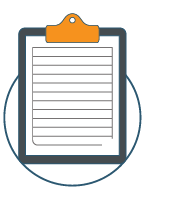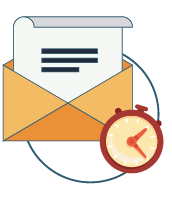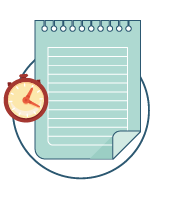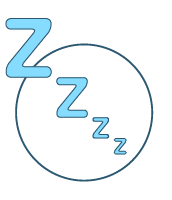Whenever this happens, it’s understandable to feel like there is no way out, that you should just give in to this cascading avalanche of doom.
In these desperate moments, we tend to forget that with just a little smarter organisational planning, we can reverse the situation and, quite crucially, avoid getting rolled up in that snowball again.
6. Follow a realistic to-do list

It is regular practice for many of us to start our day by jotting down a to-do list: writing down several tasks to complete before the end-of-play. The common mistake here is in not assigning times to each task.
Without assigning times to tasks, you’ll end up with a to-do list so long that, much like watching Nicholas Cage’s The Wicker Man, it becomes literally impossible to finish.
To avoid turning your to-do list into a wish list, you need to jot down realistic time frames for each task, which forces you to prioritise, helping you to stay focused and say no to other distractions.
Before making your list, consider these expertly crafted tips from Forbes, to ensure you’re not left playing catch up at the end of the day.
5. Have a break

Scientists from The Pennington Biomedical Research Centre in Louisiana recently reviewed the lifestyle of 17,000 men and women over the duration of 13 years. Their research showed that 54% of those people were likely to die of a heart attack and the reason was because they were sitting down for the majority of the day. We’re not medically trained, but we’ll assume that the majority of you would like to avoid this.
In response, simply make a little time each day to relieve yourself of the computer screen and go for a walk. Exercise will trigger endorphins in your brain, which in turn will improve your happiness, and as the University of Warwick has recently discovered, happiness makes people around 12% more productive.
4. Avoid distractions

A survey conducted by CreditDonkey.com asked respondents to provide details on how much time, in hours, they spend using social media sites, such as Facebook, Linkedin and Twitter, per week. The results showed that an average of 7.6 hours goes towards the activity each week. Over 70% of the users said they only visited these sites for personal purposes, with many admitting to logging in regularly whilst at work.
If you continually find yourself feeling the need to share the latest hilarious Chuck Norris meme whilst you’re at work, then perhaps you might want to consider uninstalling Facebook from your Smartphone – or at least try to cut down. By cutting down, you will avoid distraction and stop yourself from falling behind, no matter how funny those memes are.
3. Designate specific times for emails

Most of us spend a good portion of our day writing and replying to emails. However, if you fit into the category of someone that is constantly checking their emails every two minutes, you possibly have too much free time on your hands.
Productivity champion Sid Savara says “When it comes to email, ignorance is bliss. That’s why, if you’ve got something important you want to make progress on, I have these four words for you: Don’t check your email. As soon as you get up, work on something important for 30-45 minutes, and only then check it.”
Understand this, if something is urgent then the recipient will call or instant message you, rather than sending an email, so instead of stopping your current task to reply, pick a time in the day that you will respond to all emails. Maybe once in the morning and once again in the afternoon, this will minimise the chances of getting sidetracked.
2. Plan the next day

The start of a working day can be a hectic affair; along with checking your emails, making your to-do list and catching up with colleagues, you also have many other things to consider.
Set aside 5 minutes at the end of each day to write down a list (more lists!) of things that you haven’t finished yet and include any major events happening the following morning. This way, you avoid spending your evenings trying to remember what you need to do tomorrow, and when you do arrive at work fresh the next day, you will have a clearer picture in your head of what needs to be done.
1. Get an early night, wake up early

Sleeping late and waking up early can be detrimental to your productivity. If you are half-asleep at work, then the odds are that your quality of work will suffer too.
Research conducted by Harvard Biologist Christoph Randolph revealed that “morning people”, those that wake up early, are more likely to anticipate problems and minimise them efficiently, which leads to more success in the business world.
Also, if you’re tired all the time, you’re more prone to developing an oscillation of emotional feelings, ranging between the highs of euphoria and the pits of depression, also known as mood swings – So, for the sake of your surrounding colleagues, get a good nights sleep!
There you have it, our 6 simple rules to boost your productivity at work. Give them a try, they really work!
